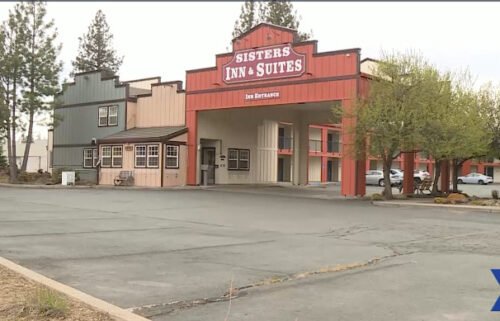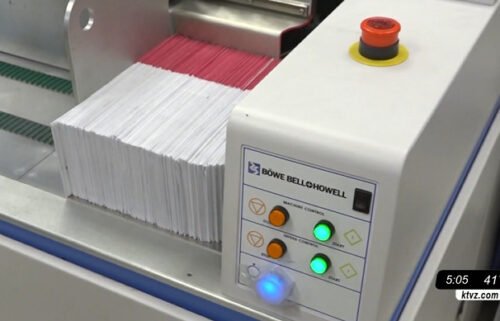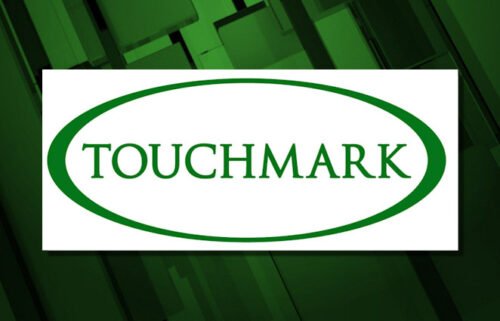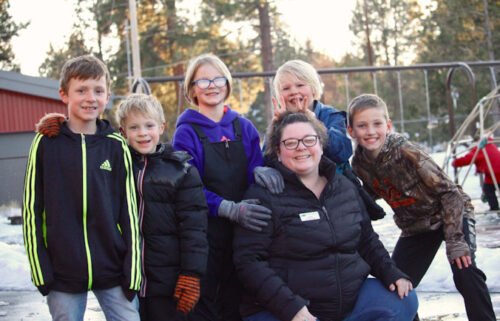Upcoming Bend symposium explores history of humans in Oregon’s Great Basin
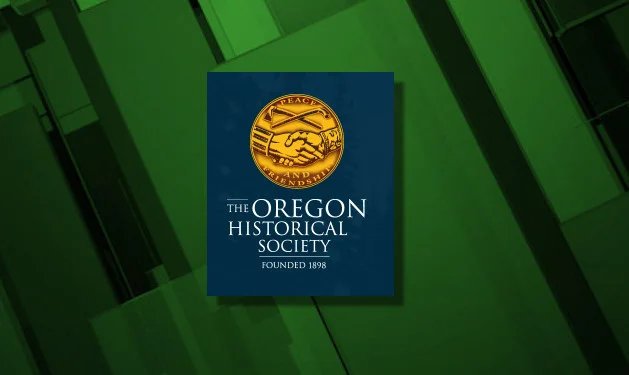
PORTLAND, Ore. (KTVZ) — The Oregon Historical Society, in partnership with the Deschutes County Historical Society and members of the Burns Paiute Tribe and Confederated Tribes of Warm Springs Indians, is hosting a two-day public symposium on the history of humans in the Great Basin region in Oregon, featuring talks by tribal knowledge-holders, anthropologists, and archaeologists.
The symposium will take place on Saturday, Nov. 5 and Sunday, Nov. 6, from 8:45 a.m. to 4:30 p.m., at the OSU-Cascades campus in Bend, and is free and open to everyone. Attendees can register for one or both days of the symposium here; PDUs are available for teachers who attend.
Human beings have lived in, passed through, and had relationships with the Great Basin region for at least 14,000 years — a time of significant transitions in climate, species, and ecosystems, all of which resulted in changing lifeways for the people. The “Human Experience in the Oregon Great Basin: Past and Present Ways of Knowing” symposium will feature presentations by experts who have researched and learned about the land, plants, animals, people, and climate of the region.
Discussions led by Wilson Wewa (Northern Paiute) and Diane Teeman (Burns Paiute) will frame each day of the symposium, which will be filled with presentations about the recent archaeological research and analyses, partnership projects, and online databases that are helping build knowledge about the historical and ongoing human experiences in the Great Basin.
“Evidence of a deep history of humans in the Great Basin is present in the stories and tribal knowledge shared by Paiute and Klamath peoples as well as is visible in physical reminders, such as caches of tools made for hunting, gathering, and other utilitarian activities,” said OHS Chief Program Officer Eliza Canty-Jones. “The work that tribal members have done to preserve this history for millennia, as well as the work archaeologists and anthropologists have conducted in more recent times, offer the public complex understandings of some of the oldest known human history on the continent of North America.”
Featured presentations are listed below; for presentation synopses and presenter bios, visit ohs.org/greatbasin.
Presentation Schedule
Each day of the symposium will include an introduction by Wilson Wewa (Northern Paiute) and a conclusion by Diane Teeman (Burns Paiute)
Saturday, November 5
Paisley Caves Textiles: Fiber Arts and the Native Plant Selection in the Northern Great Basin
Presented by Elizabeth Kallenbach
The Antiquity of Smoking Pipes and Tobacco Use in the Northern Great Basin
Presented by Thomas J. Connolly
Seeds, Fruits, and Tubers: A Regional Perspective on Archaeological Plant Data in the Northern Great Basin
Presented by Jaime L. Kennedy
Exploring Cultural Landscapes of Oregon’s Great Basin Region
Presented by Justin Rohde
Tradition, Technology, and Teaching: Collaborative Workshops between the Burns Paiute Tribe and University of Nevada, Reno’s Great Basin Paleoindian Research Unit
Presented by Geoffrey M. Smith, Diane Teeman, and Daniel O. Stueber
Sunday, November 6
Archaeology and the Human Experience at the Paisley Caves in the Northern Great Basin
Presented by Dennis Jenkins
Evidence of Ice Age Cold Adaptation in Oregon’s Great Basin and How it Can Inform Challenges of Future Climate Change
Presented by Richie Rosencrance
Modeling Indigenous Land Use Patterns in the Northwestern Great Basin at the End of the Last Ice Age
Presented by Erica J. Bradley and Geoffrey M. Smith
The Roles and Research of the Museum of Natural and Cultural History Archaeology Field School
Presented by Katelyn McDonough, Dennis Jenkins, Richie Rosencrance, and Geoffrey Smith
About the Oregon Historical Society
For more than a century, the Oregon Historical Society has served as the state’s collective memory, preserving a vast collection of artifacts, photographs, maps, manuscript materials, books, films, and oral histories. Our research library, museum, digital platforms & website (www.ohs.org), educational programming, and historical journal make Oregon’s history open and accessible to all. We exist because history is powerful, and because a history as deep and rich as Oregon’s cannot be contained within a single story or point of view.
